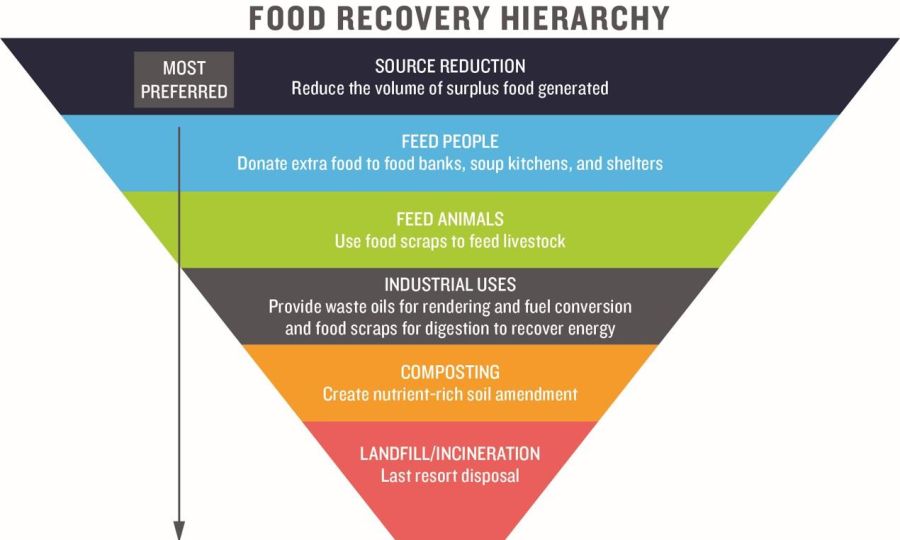
By Andreas Karamitas
Food waste poses a pressing issue requiring attention, contributing to uncontrolled food production and straining natural resources. Humans, as the predominant species on the planet, occupy a significant portion of land for food production. Economic constraints, coupled with the imperative to consume responsibly, not only safeguard the environment but also reduce greenhouse gases, offering numerous climate benefits.
A staggering one-third of the food produced is discarded by humans, exacerbating the challenge of greenhouse gas emissions. Mitigating this issue involves a collective effort to prevent food deposition, thereby preventing the release of greenhouse gases into the atmosphere and fostering tangible climate benefits.
Implementing intelligent strategies, such as the Food Recovery Hierarchy Pyramid advocated by the U.S. Food Protection Agency, presents a smart, eco-friendly, and sustainable approach to managing food waste. This inverted pyramid prioritizes rational and environmentally sound steps, emphasizing food composting and encouraging the industrialization of surplus food items, such as converting oils for energy needs. Another effective approach is feeding animals with food residues from salads, vegetables, and even meat, which can be consumed by domestic animals without issue. Collaborating with organizations like food banks emerges as an optimal way to dispose of excess food productively and beneficially. Crucially, the pyramid underscores the significance of reducing food sources and reusing them as the most environmentally friendly and effective methods.
Consider the case of America, where a significant 77% of harvests are utilized to feed animals. Leveraging food scraps for animal feed could substantially reduce this percentage, diminishing the associated energy requirements and relieving the land of the burden of overcropping for both animal and human consumption.
[This article was translated from its Greek original and is based on information from Reuters]































